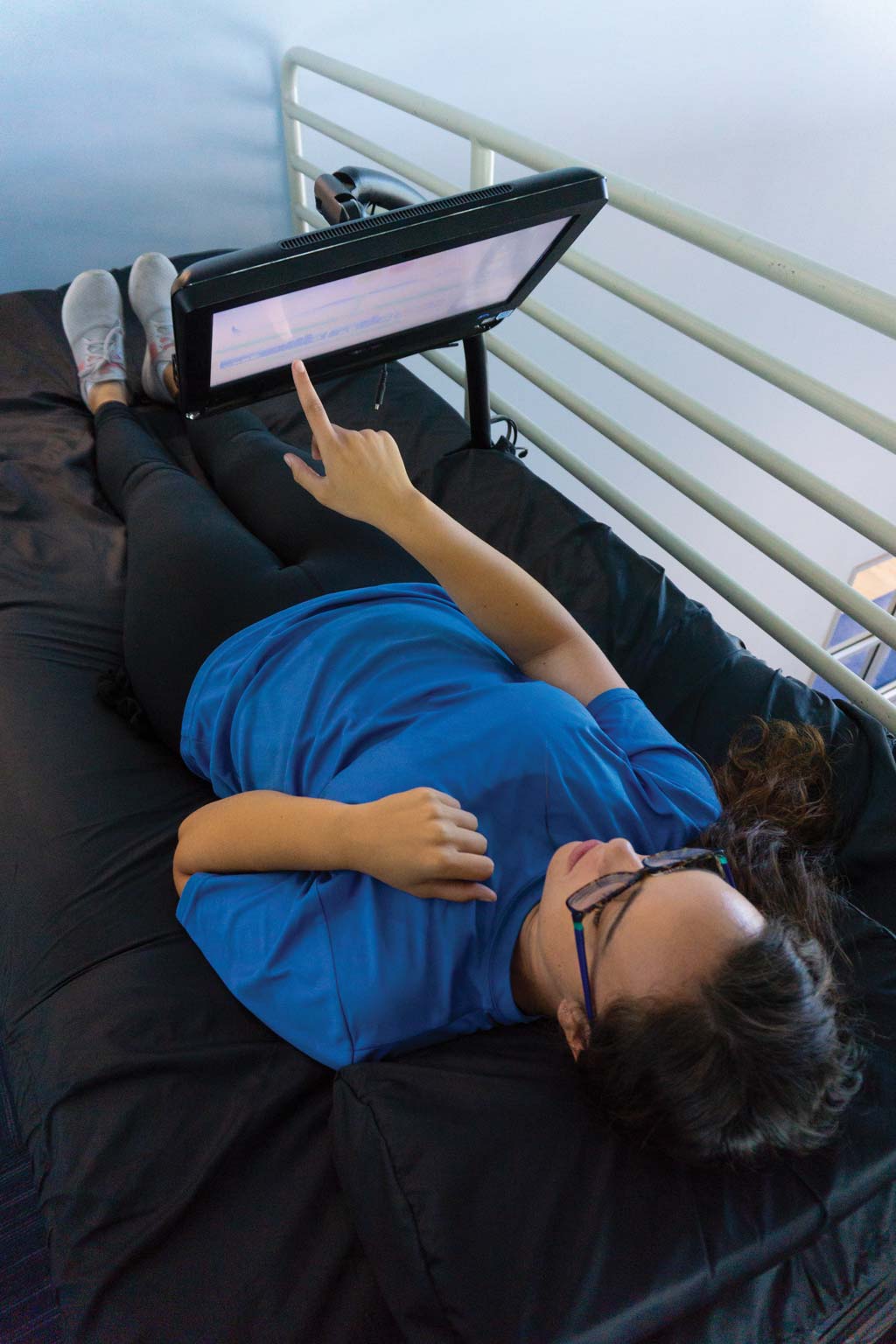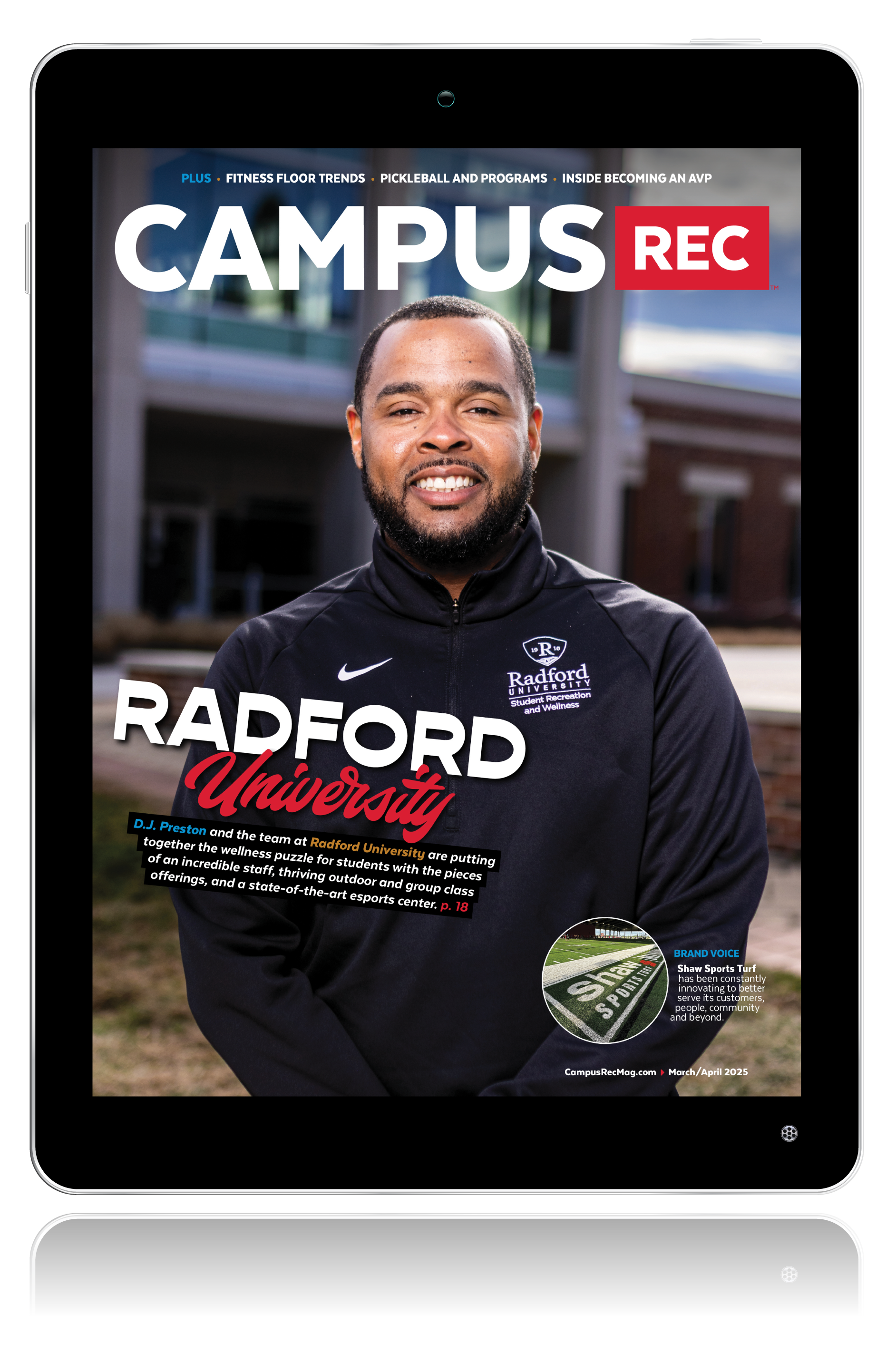California State University, San Bernardino (CSUSB) — not to be confused with Northridge, Fullerton, or any of the other 21 campuses in the California State University system — has carved out a niche in campus recreation with a uniquely named well-being program.
The “Be Well Yoties” initiative — named after the Coyotes, the CSUSB mascot — provides health and well-being education to students with concentrated programming and other services integrated throughout the whole campus.
“There is a national trend within collegiate recreation programs to look at overall health and well-being of the student, and the inspiration for this program is the desire to address wellness on multiple dimensions,” said Lynn Nester, the CSUSB director of campus recreation.
According to Nester, addressing wellness can even help students outside their time in the gym. “If a student is not well in one dimension or more, it can severely impact their ability to succeed in the classroom,” she explained. “We want to make sure they’re healthy and well in all aspects of their lives. How can we help our students in the classroom and help them persist to graduation?”
The education from Be Well Yoties begins when a student sets foot on campus. At new student orientations, student leaders from the CSUSB rec center present information and lead workshops on health and wellness for students.
“It’s really important for our incoming students to learn about the program and learn about the resources that are there for their well-being,” said Nester. “And I think students may be more receptive to certain information from their peers.”

As the program continues to evolve, Nester hopes to extend the reach of Be Well Yoties beyond just their students, and she wants to even have a dedicated wellness center on the San Bernardino campus.
“My ultimate vision is a campus-wide program that could possibly encompass students, faculty and staff altogether,” said Nester. “While we better understand how students live, work and study during their time at a higher education institution, this well-being information needs to be embedded in the culture of our campus.”
Wellness center or not, the Be Well Yoties program will continue to grow, educating more students on the benefits of health and well-being.
“The Be Well Yoties program isn’t just a recreation and wellness program; it’s not just a health promotion program,” said Nester. “I envision it being a campus-wide program, and I hope it’ll almost become a way of life.”










